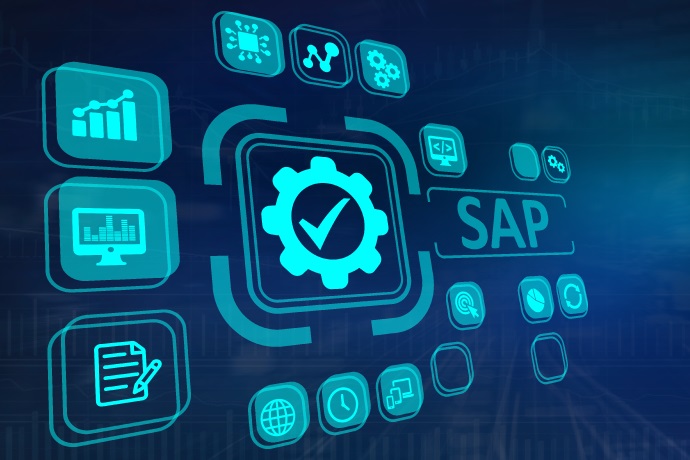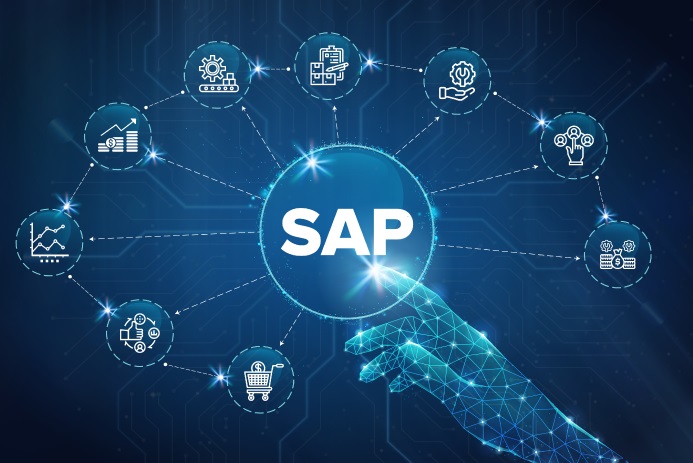SAP
Sep 16, 2024
Say Goodbye To Downtime With SAP Certified Solution from Yotta
In today’s always-on, digital-first business landscape, downtime is no longer an option. Enterprises that rely on SAP for their critical…
SAP
Published on January 7, 2025

Customer relationships are the cornerstone of long-term success. Building and maintaining strong customer relationships is about providing quality products or services and offering exceptional experiences that meet their evolving needs. For small and medium-sized businesses (SMBs), achieving this level of personalisation and attention to detail is critical for fostering loyalty and driving sustainable growth.
To help SMBs optimise customer relationship management (CRM), SAP Business One, a comprehensive Enterprise Resource Planning (ERP) solution, offers an integrated approach. This platform provides tools that empower businesses to streamline their operations, gain deeper insights into customer behaviours, and deliver exceptional service.
SAP Business One allows organisations to manage key business functions like finance, sales, customer relationship management, inventory, purchasing, and operations. This allows businesses to seamlessly monitor and control their processes, providing them with a 360-degree view of operations.
When it comes to CRM, SAP Business One offers a range of functionalities that help businesses build stronger customer relationships. It provides tools for managing contacts, tracking interactions, scheduling follow-ups, and analysing customer data. By centralising customer information and providing insights into customer behaviour, SAP Business One empowers businesses to tailor their services and communication for better engagement.
1. Centralised Customer Data for a 360-degree View
A key challenge businesses face is managing disparate customer data across various departments, which often leads to inefficiencies, miscommunication, and poor customer experiences. SAP Business One solves this by centralising all customer-related information into one database.
Customer profiles in SAP Business One include sales, service, marketing, and finance data. This means sales teams have access to not only contact information but also transaction history, service requests, and payment details. By accessing a unified customer profile, sales representatives can comprehensively understand each client’s needs, enabling them to engage in more personalised and relevant conversations.
Moreover, the centralised data enables seamless collaboration across departments. If a customer contacts the support team with an issue, the service agent can quickly review their purchase history and previous interactions, ensuring a prompt and informed response. This holistic view fosters better communication, strengthens relationships, and creates more satisfying experiences for customers.
2. Automated Sales and Marketing Campaigns
Effective CRM requires businesses to reach the right customers at the right time with the right message. SAP Business One facilitates this by automating sales and marketing activities. The system allows businesses to create and manage targeted marketing campaigns that are tailored to customer preferences and behaviours.
For instance, businesses can segment their customer base based on criteria like buying patterns, demographics, or engagement history. This allows for the creation of personalised marketing campaigns designed to attract specific customer segments. Whether it’s an email campaign promoting a new product or a loyalty offer for repeat buyers, SAP Business One automates the execution of these campaigns, ensuring they run smoothly and efficiently.
The system also provides analytics to measure the success of these campaigns, allowing businesses to fine-tune their strategies. By tracking customer responses and engagement, businesses can assess the effectiveness of their marketing efforts and adjust their approach accordingly.
3. Streamlined Sales Process for Increased Conversions
Sales teams play a crucial role in CRM, and SAP Business One provides them with tools to streamline the sales process and increase conversion rates. With features like lead management, opportunity tracking, and real-time access to customer data, sales representatives can work more efficiently and close deals faster.
Sales teams can track leads from initial contact through to conversion, ensuring that no opportunity slips through the cracks. The system automatically logs interactions and progress with each lead, providing clear visibility into the sales pipeline. Sales representatives can prioritise their efforts based on the likelihood of closing a deal, helping them focus on high-potential opportunities.
Moreover, SAP Business One enables businesses to create and manage quotations, track orders, and ensure that all relevant documentation is linked to the customer profile. This reduces manual effort and allows sales reps to deliver quicker responses and more accurate proposals.
4. Comprehensive Service Management for Improved Customer Support
Customer support is a pivotal aspect of CRM. SAP Business One includes a service management module that helps businesses track and manage service requests, ensuring that customer issues are resolved promptly and efficiently. This tool provides businesses with visibility into service contracts, repair orders, and warranty claims.
Support teams can quickly view the customer’s service history and provide contextually relevant assistance. For example, if a customer contacts the support team with a product issue, the support agent can immediately review any previous service requests or warranty information, accelerating problem resolution.
The service management module also enables businesses to manage service level agreements (SLAs) to ensure that all requests are addressed within the agreed timeframes. By maintaining a high standard of customer support, businesses can increase customer satisfaction and build trust.
5. Powerful Analytics and Reporting for Data-Driven Decision Making
Data-driven decision-making is essential for optimising CRM, and SAP Business One provides businesses with powerful analytics and reporting tools to gain actionable insights into customer behaviour. The system can generate real-time reports that track sales performance, service metrics, customer satisfaction, and more.
Businesses can identify trends in customer purchasing habits, uncover opportunities for cross-selling or upselling, and forecast demand for products and services. The ability to track customer satisfaction through feedback and survey tools also helps businesses monitor how well they are meeting customer expectations.
Businesses can make informed decisions to enhance their CRM strategies by leveraging these insights. For instance, if certain products receive positive customer feedback, businesses can create targeted campaigns to promote those items to similar customer segments.
6. Mobility for Remote Teams
With the increasing reliance on remote work and field operations, businesses need CRM solutions that are accessible from anywhere. SAP Business One’s mobile application allows sales representatives, service technicians, and customer support teams to access customer data and manage tasks on the go.
Mobile access to CRM tools ensures that employees can respond to customer inquiries, update records, and close sales, regardless of their location. This enhances operational flexibility and ensures that customer interactions remain smooth and uninterrupted.
Conclusion
Yotta provides an end-to-end SAP suite: Hosting, Licenses, Implementation, Consulting, and Support (AMS).
Incorporating real-time data access and advanced features like SAP HANA mobile apps into your CRM strategy can significantly enhance decision-making and streamline operations. With tools such as Enterprise Search, Cash Flow Forecasting, Available-to-Promise, Delivery Schedule Management, Intelligent Forecasting, and Sales Recommendations, businesses can better understand their operations, improve customer satisfaction, and maintain healthy liquidity.
These features enable companies to react to customer demands quickly, optimise their inventory, and predict future trends with greater accuracy. By integrating these capabilities into SAP Business One, businesses improve CRM efficiency and enhance overall productivity and profitability, ensuring that they stay ahead in a competitive marketplace.

SAP
Sep 16, 2024
In today’s always-on, digital-first business landscape, downtime is no longer an option. Enterprises that rely on SAP for their critical…

SAP
May 10, 2024
Having a robust Enterprise Resource Planning (ERP) system is no longer a luxury, it’s a necessity. An ERP streamlines critical…

SAP
Sep 13, 2023
Organisations are constantly in pursuit of innovative solutions that streamline operations and deliver unparalleled customer experiences. The convergence of cutting-edge…